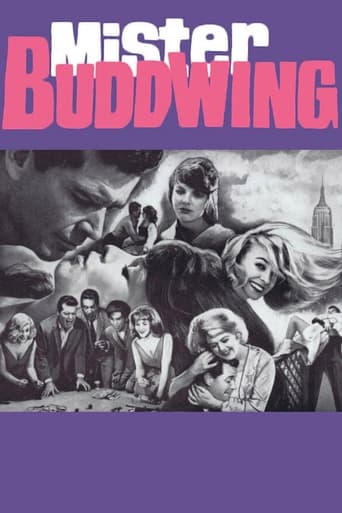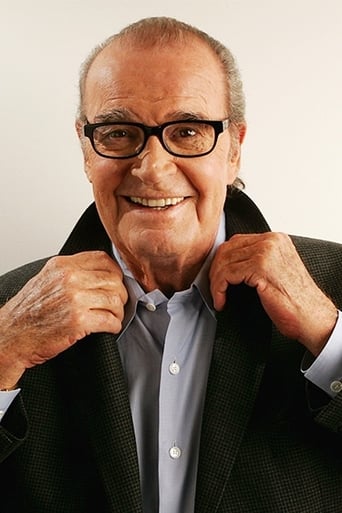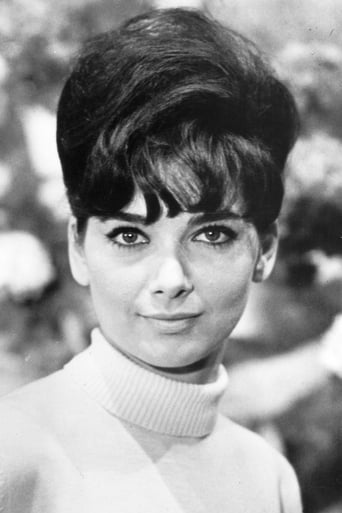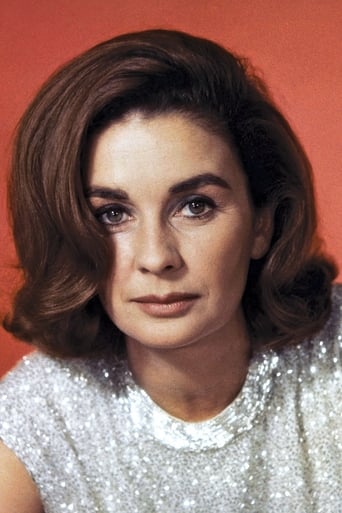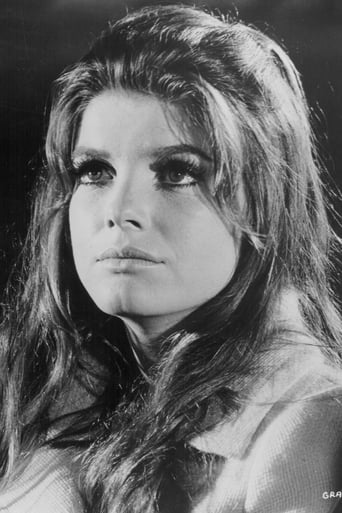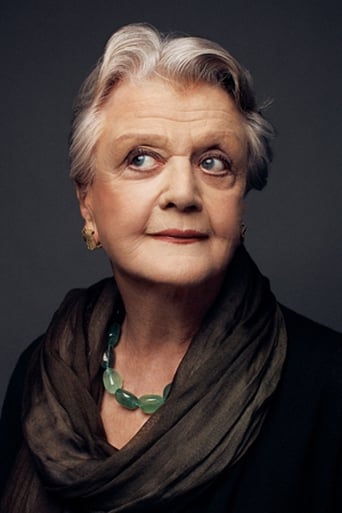ManiakJiggy
This is How Movies Should Be Made
Deanna
There are moments in this movie where the great movie it could've been peek out... They're fleeting, here, but they're worth savoring, and they happen often enough to make it worth your while.
Kinley
This movie feels like it was made purely to piss off people who want good shows
mgtbltp
Oscar-winning film director Delbert Mann ( The Outsider (1961), Marty (1955) - TV, Playhouse 90, Goodyear Playhouse, Omnibus, Producers Showcase, Playwrights '56, Philco-Goodyear Television Playhouse, Schlitz Playhouse, Masterpiece Playhouse) adapts Evan Hunter's novel "Buddwing" and with the cinematography of Ellsworth Fredericks (Invasion of the Body Snatchers (1956), Seven Days in May (1964)) and a great original jazzy score by Kenyon Hopkins (composer for Baby Doll (1956), 12 Angry Men (1957), The Fugitive Kind (1959), The Hustler (1961), to create a stylized "Jazz Noir". Filming in 1965, Mister Buddwing is one of those lost films that are on the cusp between Film Noir and Neo Noir. Sort of a psychological noir rather than a "crime" noir. A melancholy film that plays with time, space and your mind as the various vignettes overlap it's eerie and noirishly suspenseful, but at times darkly comic. It requires multiple viewings to fully comprehend.The film stars James Garner in a role that really displays his acting chops in a performance far removed from his wisecracking Bret Maverick (disregard his contention that this is his worst film, he sells himself way too short). Garner plays one of Film Noir's touchstone tropes the amnesiac. The film opens with an unfocused shot of the sky sliced diced and fragmented by bare branches . As the frame focuses and our view pans we see the branches are trees, we see buildings, and Central Park at the corner of 59th and 5th. In an homage to Robert Montgomery's "The Lady In The Lake" and the beginning of "Dark Passage", the film displays an intriguing POV sequence that begins when hands "rub" the eye of the camera, it also begins a faint jazz heartbeat increasing in tempo and volume as "we" the character sitting on a park bench search frantically through out suit pockets (for identification) combing out a train timetable, a scrap of paper with a name Gloria and phone number and some pills. A ring on his finger has an inscription "from G.V.". The POV sequence continues until we stumble into a mirror at the Plaza Hotel when Garner is revealed. He has neither money or ID but he does remember the name of a woman, a woman named Grace.Using a lobby phone and giving a fictitious room number he calls Gloria (Angela Lansbury) to try and discover his identity. Gloria a divorced floozy with a heart of gold, takes pity on him and gives him money so that he can find himself. So begins his jazz odyssey through the streets of New York. In his quest for Grace, Garner meets three women, Janet (Katherine Ross), Fiddle (Susanne Pleshette), and The Blonde (Jean Simmons), each of the women he at first mistakens for Grace. So at first we see Garner interact with each woman in their true identities and at some point they become a vivid flashback to his relationship with Grace at different stages of his life with Grace, the starry eyed young love stage, the struggle with real life, and the consequences of wrong decisions made. All this makes the viewer a little disoriented, a little lost, exactly how James Garner's character feels throughout the movie.The film features the neighborhoods of midtown Manhattan, Times Square, and the Queensboro Bridge as its backdrop creating a cinematic memory link to classic Noirs, The Sweet Smell Of Success, Kiss Of Death, Killers Kiss, The Unsuspected. Wonderful melancholy jazz compositions accompany Garner as he wanders the streets.All the three actresses are outstanding in their dual rolls.Watch for Joe Mantell's cab driver character's hilarious monologue then pay attention for its echo with the 2nd cab driver Billy Halop, the original leader of the Dead End Kids. Watch for Nichelle Nichols appearance as a dice player, and Jack Gilford's interaction with Garner in a lunch counter.Available on DVD from the Warner Brothers Archive Collection. 9/10
trusgift
Whether you interpret the plot line as a vehicle for allegory or an ultimately flawed exercise in suspense, the highly successful photography, editing and musical scoring in "Mister Buddwing" deserves an audience. It is difficult to imagine a more urgent, dread-tinged, unsettling adrenaline rush as that brought on by the Jean Simmons sequence culminating in the Harlem craps game, even if the climax following is a bit of a pedestrian let-down. Sam Buddwing's grown-up Holden Caufield-like exile in urban wilderness - a bleak mid-1960s Manhattan where he encounters memorable, goodish Samaritans tainted by their own agendas(Jack Gilford as a cafeteria owner preoccupied with Judaism and Angela Lansbury in one of her trampish roles, but distinguishable from, say, "The World of Henry Orient" by her lower social class) and a park vagrant claiming to be God make for a very rich cinematic experience, and the final camera shots, essentially the opening ones in reverse, provide a strikingly satisfying coda.Notable for its time are a couple of overt homosexual references which don't seem to be significant to the plot, but contribute a degree of realism probably intended to be grittily alienating. In the most poorly-handled scene in the film, where Buddwing is accosted by a beat cop and a crowd, unlikely in its sheer numbers, quickly forms around them, an out gay man makes an appearance which is pretty significant considering the pre-Stonewall setting.
johno-21
I recently saw this on TCM and was surprised that I had never seen this before. Based on the novel by popular novelist/writer Evan Hunter who wrote such classics as The blackboard Jungle and the screenplay for The Birds this was adapted for the screen by Hunter and Dale Wasserman. this is the story of an amnesiac (James Garner) who wakes up on a Central Park park bench with no idea who he is. Dressed in a gray suit he discovers only two possible clues to his identity, a ring with the initials G.V. inscribed and a piece of paper with a telephone number on it. He has the name of Grace in his mind who he assumes must be his wife and so with the lack of a name of his own his creates one on the spur of the moment in Sam Buddwing and begins his search through Manhattan of himself and of Grace. His adventure brings him to several memorable characters in Angela Lansbury as the loose woman with a kind heart Gloria, Suzanne Pleshette as actress Fiddle Corwin, Katherine Ross as the pretty and studious Janet, Jack Gifford as restaurant owner Izzy Schwartz, Joe Mantell as the 1st cab driver, George Voskovec as a shabby old man who calls himself God and Jean Simmons as the high society blonde out on treasure hunt for a party. This film was nominated for two Academy Awards for Best Black and White Art direction and Best Black and White Costume. It has a gritty New York location feel and frequently uses hand-held cameras and is photographed by cinematographer Ellsworth Fredricks. Directed by Delbert Mann best known for directing such classics as Marty, Desire Under the elms and Separate Tables this is not one of his best but it's quirky and interesting and hold your interest thanks to great on screen performances by the fine cast. Garner is better served as an actor when he has some light comedic roles and he falls a little short in this straight dramatic role where he only smiles once briefly in the entire film. The ending falls short too but all in all it's a different film and I would give it a 7.5 out of 10.
Robert J. Maxwell
Sometimes jazz musicians trade bars. The drummer solos for a bar or two, then back to the tenor man who takes another, back to the drummer, and so on. The listener doesn't really get lost, because it's not a complicated arrangement. And it gives the soloists a chance to take some real chances because his piece is so short that he doesn't have to build anything out of it.This film is something like that. There's a kind of central theme that we can follow without too much trouble. Garner wakes up nameless and bereft of memory in Central Park, invents a name for himself after seeing a beer truck and an airplane, and wanders around the city running into people who take some kind of interest in him, friendly or hostile, as he goes through flashbacks.Angela Lansbury gets the first couple of bars as a lead to his identity that turns out to be a dead end. There are a few briefer encounters, including one with Jack Gifford, who is convinced Garner is a Jew who has changed his name and forgotten his original name because he is ashamed of it. (It's a bizarre scene but a very funny one. Anyway, all the scenes have an element of the surreal in them.) If you have to be nearly broke and an amnesiac in a big American city, New York isn't the worst place. The fact that people constantly engage you, kvetching about their mothers-in-law or something, is reassuring. At least when you're arguing with someone or flirting with them you know you're alive. In La-La Land, Home of the Purple Taj Mahal Motels, you can't even make eye contact with strangers. You're not only amnesiac, you're invisible too.I don't think I'll let New York off the hook so easily though. Almost every city gains in comparison to L.A. In the mid-60s when this film was shot, New York's streets were safe to stumble aimlessly around in. Within a few years you could still easily get attention from others but the nature of the attention had changed.Come to think of it, this is the second time that James Garner has played an amnesiac, except that in the other case ("36 Hours") he wasn't a real amnesiac and had to be fooled into believing he was one.The first half hour swung. The rest of it jumped around a lot without really showing us much that's gripping. A good deal of time is spent with Garner and his wife arguing about where they will get the money to provide for the baby that she wants and he does not. The dialog is thin and the scene seems pointless. The final realization comes to Garner at the end of the movie and it seems arbitrary.Let's call it an interesting experiment. Maybe the novel was better organized.
